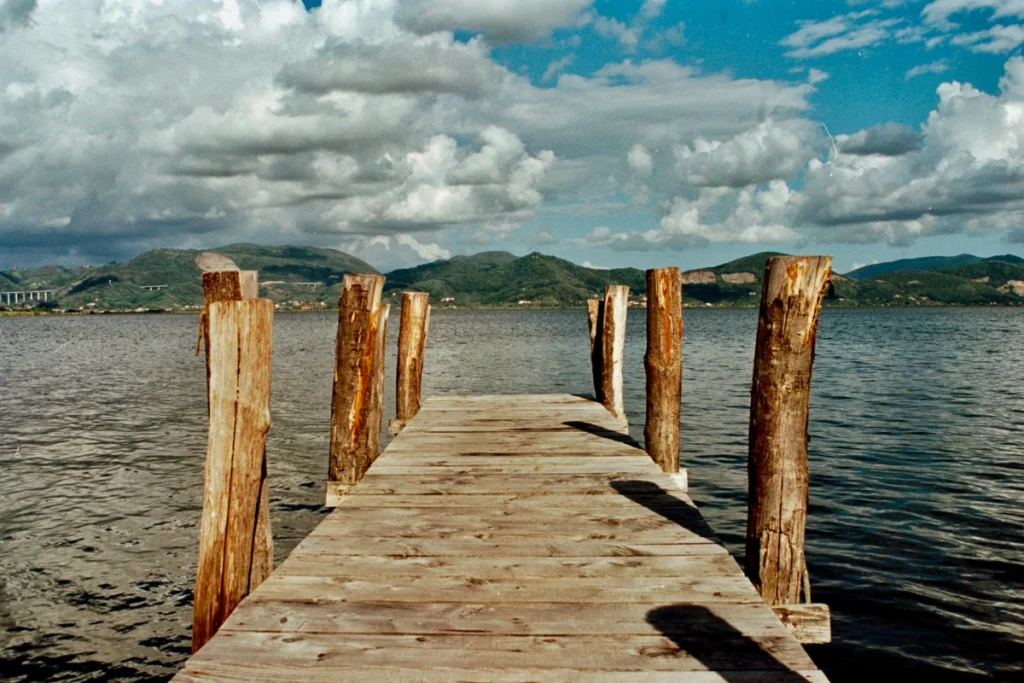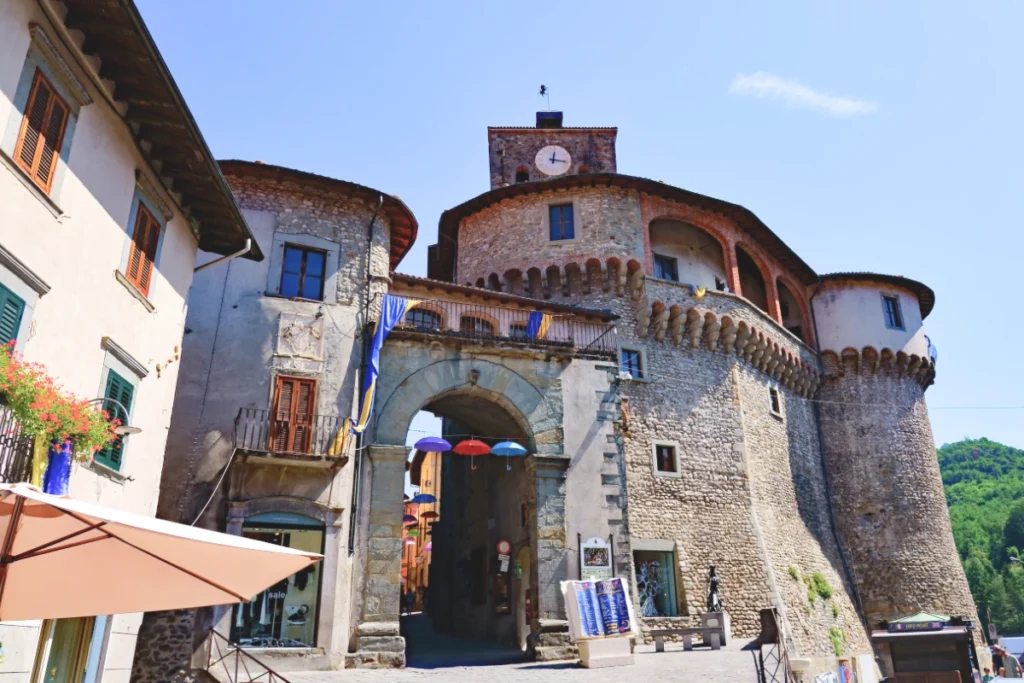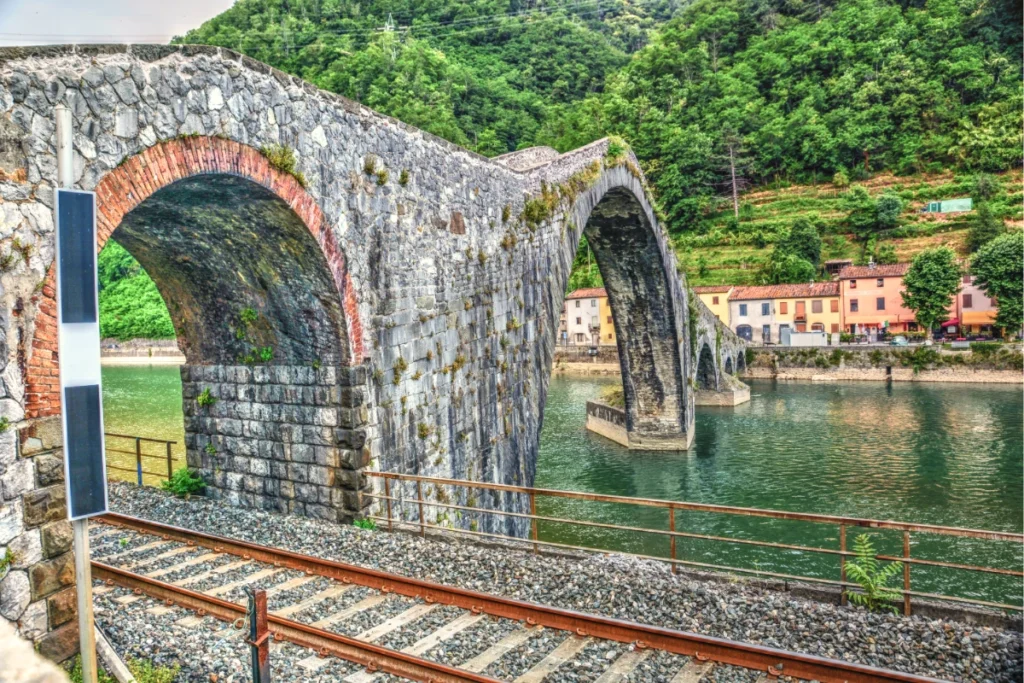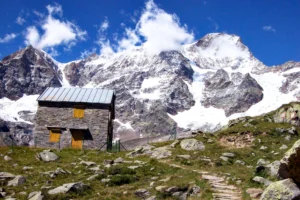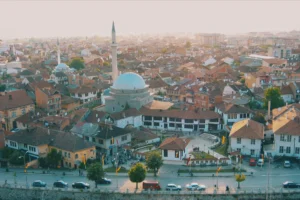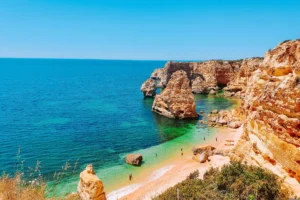Lucca: The Italian Gem You Must See in 2025

Discover Lucca's enchanting history, hidden villages, and nature-filled routes in 2025. This Tuscan gem awaits you.
In the heart of Tuscany, surrounded by historical walls and a unique landscape, lies Lucca – a must-see destination for every traveler. Often overshadowed by its neighbors Pisa and Florence, this city, which embodies Italy’s romantic atmosphere in its purest form, tells its own fascinating story. From the narrow streets within the city walls to the nearby hidden lakes and secluded paradises, every corner is filled with surprises waiting to be discovered. In this article, we’ll explore Lucca—highlighted under the theme “Europe’s Hidden Beauties: Remote Lakes and Undiscovered Places”—along with the latest 2025 tips and experiences.
When I first set foot in this city, I felt as though I’d entered a fairy-tale land preserved behind ancient walls. On one side, magnificent churches and stone buildings; on the other, a breathtaking natural landscape … Particularly at Lago di Massaciuccoli, a hidden lake away from the crowds, the earliest morning light rekindles your sense of adventure. A white veil of mist rising over the lake creates the illusion of stepping into a painting. This spot not only makes for stunning photographs but also grants a deep sense of peace to your soul.
Of course, Lucca is not limited to its tranquil scenery. As of 2024, local events, gastronomic discovery routes, and activities for thrill-seekers have significantly enhanced the city’s appeal. Perhaps you’d like to cycle around the city walls or go paragliding over the Tuscan hills? Or maybe your idea of pure happiness is savoring regional pasta in an authentic trattoria by the lake. No matter your mood or travel style, you’ll find the perfect activity here in Lucca.
1. Lucca’s Enigmatic Lakes: Nature’s Silent Witnesses
1.1 Lago di Massaciuccoli: Tuscany’s Hidden Paradise
Lago di Massaciuccoli, though well-known among locals, has preserved its peaceful, secluded atmosphere away from the crowds. Arriving at the lakeshore in the early morning, you’ll be greeted by a white blanket of mist rising over the water, painting a tranquil scene. This mesmerizing view resembles a painting come to life. Only the gentle wingbeats and melodic calls of birds interrupt the stillness.
Birdwatching is a popular activity in this region. Numerous bird species, either permanently resident or stopping over during migration, offer a visual feast for nature lovers. Flamingos and herons, gracefully gliding across the sky, provide outstanding photo opportunities. If you’re interested in birdwatching, remember to bring binoculars and a camera.
Walking along the lakeshore is almost therapeutic. Wooden walkways and trails that wind through the reeds reveal different, captivating panoramas. If you want to clear your mind and listen to the sounds of nature, even a short stroll can help ease your stress. Thanks to these qualities, Lago di Massaciuccoli makes an ideal escape for anyone seeking tranquility in Tuscany.
You can take a break at one of the cozy trattorias or cafés on the shore and enjoy authentic Tuscan flavors. Many places offer garden seating, letting you fully appreciate the surrounding nature. One highly recommended snack is toasted bread served with fresh cheese and olive oil. While admiring the lake views, you can chat with the locals to get a deeper understanding of Tuscan culture.
1.2 Lucca’s Other Small, Undiscovered Lakes
The region around Lucca boasts many hidden lakes—smaller than Lago di Massaciuccoli, yet striking in their natural beauty. Often tucked away at the foothills or amid pine forests, these lakes are especially great for quick weekend getaways. They’re just a short drive from Lucca, leading you into these secret paradises.
The main advantage of these smaller lakes lies in their remoteness and peaceful environment, far from large tourist groups. They’re perfect for nature walks, meditation, or photography, offering a refuge for those wishing to escape into nature. Some of these lakes even have designated camping areas—but be sure to obtain a permit if necessary.
In spring, Lucca’s hidden lakes exude an especially enchanting atmosphere, with lush greenery, lily pads floating on the water, and majestic mountains in the background that resemble a fairytale setting. In summer, you can at least dip your feet in the water to cool off and immerse yourself in the tranquility. Swimming may not be allowed at most lakes, but simply soaking your feet offers a peaceful moment.
In the small lakeside villages, you’ll encounter the locals’ welcoming hospitality. By visiting the traditional markets, you can purchase fresh fruits, vegetables, homemade jams, and cheeses. Sampling local delicacies will give your trip to Lucca an authentic touch. The villagers’ shared stories will reveal more about the lakes’ history and the region’s cultural heritage.
1.3 Unforgettable Moments by the Lake: Activities and Experiences
Lucca’s hidden lakes not only offer stunning views but also present various activities for an eventful day outdoors. If you enjoy canoeing or rowing, you’ll find small rental services at Lago di Massaciuccoli. Heading out on the water early in the morning gives you a fantastic opportunity to work out and observe nature as it wakes up.
Windsurfing is another popular choice for water sports enthusiasts. Tuscany’s mild winds provide favorable conditions for learning or honing your skills. Both beginners and experts can find courses to match their level. If you prefer a more laid-back day, fishing is a lovely alternative. This region is a paradise for freshwater anglers.
For relaxation, you can have a **picnic by the lakeshore** or sunbathe, bringing along some regional cheeses, fresh bread, and **delicious Italian olive oil** to enjoy with family or friends—and, of course, snap some amazing photos. In spring, when nature awakens and the flowers begin to bloom, this experience becomes truly unforgettable.
Lucca’s lakes are not just about beautiful scenery; they also reflect the city’s serene and deep-rooted cultural identity. Spending just a few hours along the water will help you understand what makes this city so special. Make sure to add Lucca’s lakes to your Tuscany itinerary.
1.4 What to Keep in Mind: Tips for Visiting Lucca’s Lakes
-
While the hidden lakes in Lucca are undeniably beautiful, a respectful approach to nature is crucial to preserving the rich biodiversity. Avoid littering, keep noise to a minimum, and maintain the peaceful surroundings.
-
Remember that insects can be especially prevalent in the early morning and late afternoon, so bringing insect repellent is a good idea. Also, watch out for slippery or rocky terrain near the lakeshore by wearing sturdy shoes.
-
Most lakes are not officially designated for swimming. If you want to enter the water, check with local authorities or residents beforehand. If camping is on your agenda, note that some conservation areas ban or limit camping, so you’ll need to inquire with local municipalities or institutions.
-
If you have time, consider joining a guided tour to learn about the area’s birdlife, history, ecosystem, and local myths. Lucca’s mysterious lakes offer more than just scenery; they embody a unique cultural heritage right in Tuscany’s heart.
2. The Hidden Villages in Lucca’s Surrounding Hills
2.1 Castelnuovo di Garfagnana: A Time-Travel Stop in Tuscany
Lucca’s surroundings are dotted with quaint villages that appear to have paused in time, far removed from the hustle and bustle. One of the most fascinating is Castelnuovo di Garfagnana. Featuring medieval ruins, stone houses, and winding streets, this picturesque village lets you step back into history. A small stream meanders through the village, accompanied by birdsong and the calm of nature that soothes the soul.
One of the most mesmerizing features of Castelnuovo is the panoramic view over the Garfagnana Valley. When the sun sets, its lush green fields turn a magical shade of red, resembling a postcard scene. By talking to the villagers, you can learn about their daily lives, interesting local stories, and even time-honored recipes. Knowing Italian will further enrich this experience; however, even with limited Italian or basic English, you’ll easily communicate thanks to the locals’ warmth.
Make sure to visit the imposing medieval fortress (fortezza), which has stood guard over the village for centuries. From the fortress walls, you can witness a breathtaking view of the valley. In the village’s shops, you’ll also find locally produced olive oils, cheeses, and wines.
Castelnuovo di Garfagnana is a perfect base for those who enjoy nature walks or trekking. The surrounding mountainous terrain features a variety of routes for different skill levels. If you’re eager to discover Tuscany’s unspoiled nature, be sure to include this captivating village in your travel plans.
2.2 Montecarlo: Tuscany’s Dream Destination for Wine Lovers
Just outside of Lucca lies Montecarlo, a paradise for wine enthusiasts. Known for its delicious wines made from traditional Tuscan grape varieties, this area’s rolling hills, lined with vineyards and olive groves, are pure eye candy. Especially during harvest season in September and October, Montecarlo takes on a festive vibe.
The village center, which dates back to the Middle Ages, is surrounded by imposing walls. Stroll through Montecarlo’s cobblestone streets and you’ll discover charming cafés, small art galleries, and boutique shops. Life here moves at a slower pace, providing visitors a quiet retreat from their daily routine.
If you love wine, then vineyard tours and wine-tasting sessions are a must. Under expert guidance, you can tour the vineyards, watch the wine-making process, and then sample the wines that mature in old oak barrels. Long-standing winemaking traditions continue to be honored here, giving these wines a distinctive character. Paired with regional cheeses and charcuterie, they promise a culinary adventure.
Staying overnight in Montecarlo is another memorable experience. Traditional stone houses turned into boutique hotels and agriturismo (farm stays) provide much more than just a normal hotel stay. Mornings begin with fresh fruits and vegetables picked straight from the garden, and the warm hospitality makes it easy to live out Italy’s famous “dolce vita.”
2.3 Borgo a Mozzano and the Devil’s Bridge Mystery
Another noteworthy spot near Lucca is Borgo a Mozzano, best known for its Ponte del Diavolo (Devil’s Bridge). This medieval structure is famous for its unique arches and the enduring legends that surround it.
According to legend, the head builder made a pact with the Devil to complete construction on time. In return, the Devil demanded the soul of the first being to cross. However, the clever builder had an animal—a dog, in many versions—step onto the bridge first, thereby outwitting the Devil. Ever since, it has been known as the “Devil’s Bridge.” Today, this distinctive architectural marvel is one of Lucca’s most photographed attractions.
Borgo a Mozzano’s quaint ambiance immediately charms visitors. Locals gather in small squares to sip coffee and engage in lively conversation, and the village moves at a relaxed pace. Strolling the narrow streets, you’ll see beautifully restored stone houses and impressive churches, reflecting a proud heritage and traditional way of life.
The village is also an ideal launching point for hiking and cycling adventures. Situated at the foot of the mountains, it offers numerous scenic trails with breathtaking views. Particularly in spring, when flowers bloom and nature reawakens, it’s refreshing to explore this area on foot or by bike. You might come across small chapels, ancient trees, and picturesque country houses along these routes, creating an unforgettable trek.
2.4 In the Heart of Tuscan Countryside: Authentic Village Life
The hidden villages around Lucca showcase the authentic rural Italian lifestyle at its very best. One of the region’s biggest advantages is that it remains largely untouched by mass tourism. Wandering through these villages, you’ll observe locals chatting on doorsteps, clothes hanging on lines, and even the morning milk deliveries—visions of a slower, simpler time.
Don’t miss the local markets held on specific days of the week. Filled with fresh fruits, vegetables, homemade jams, and local cheeses, they give a vivid glimpse of Tuscan daily life. You’ll find the renowned pecorino cheese, freshly made pasta, and delectable jams, along with spiced bread and extra virgin olive oil—unmissable culinary delights.
Many family enterprises and local cooperatives offer cooking workshops, letting you discover the secrets of Tuscan cuisine. Learn how to craft handmade tagliatelle, prepare a fragrant tomato sauce made with in-season tomatoes, or whip up a classic tiramisù using age-old methods. These experiences will enrich your trip with memories you’ll cherish for a lifetime.
Peace and quiet reign in these villages, offering a tranquil escape from the hustle of everyday life. Whether you stay a few hours or a few days, the stress and commotion of city living quickly fade away. These hidden havens around Lucca are perfect for those seeking a pause in time and an authentic taste of Tuscan living.
3. Lucca for Adventurers
3.1 A Historic Journey on Two Wheels: Cycling the Walls of Lucca
Lucca’s iconic city walls are one of its main symbols, encircling the city in a near-perfect ring. Built during the Renaissance for defensive purposes, they now provide one of the most delightful ways to discover Lucca—by bicycle. This 4-kilometer elevated pathway features tree-lined walkways, benches, and viewing points to take in the city sights.
You can rent a bike to explore both the walls and Lucca’s charming inner streets. Early morning offers a special experience on the walls while the city is still asleep. *From here, you can enjoy a bird’s-eye view of medieval towers, majestic churches, and tranquil courtyards.* The vantage points along the walls provide opportunities for spectacular photos, revealing Lucca’s rich history at a glance.
Scattered cafés and green areas on the walls are perfect for short breaks to enjoy an Italian coffee or a scoop of gelato. Keep in mind that pedestrians use these walkways as well, so be sure to ride responsibly and observe basic safety guidelines.
After your ride, head into Lucca’s intricate network of narrow streets and immerse yourself in local life. Cobblestone lanes lined with colorful buildings, small boutiques, and antique stores give Lucca its unique character. If you’re in the mood for further exploration, you can venture outside the city and pedal through Tuscan hills blanketed with vineyards and olive groves—an unforgettable cycling adventure awaits.
3.2 Unforgettable Trekking Experiences in the Apuan Alps
The Apuan Alps (Alpi Apuane), surrounding Lucca, are a veritable paradise for nature lovers and hiking enthusiasts. Offering numerous routes of varying difficulty, this imposing mountain range appeals to both seasoned hikers and beginners. These trails often lead to secluded lakes, hidden caves, and panoramic vantage points that will leave you speechless.
One of the most popular hikes leads to the summit of Monte Forato, home to a magnificent natural rock arch. This geological wonder showcases the region’s spectacular formations. From the top, you’ll enjoy sweeping views of Lucca and the coastal city of Viareggio. Although the trek is challenging, the picturesque scenery and photo opportunities make it worthwhile.
Before hitting the trail, be sure you’re well-prepared with enough water, snacks, and weather-appropriate clothing. Sturdy hiking boots are essential in the sometimes rugged, rocky paths of the Apuan Alps. If you’re visiting for the first time, consider hiring a local guide or studying route details beforehand. Also, remember to keep your phone charged and bring a map or GPS device.
Along the way, you may come across small alpine huts (rifugi) or shelters, where you can rest and savor local culinary delights. Indulge in sweet chestnut treats or polenta—traditional dishes that taste even better after a strenuous walk.
3.3 See Tuscany from Above: Paragliding Adventures
Tuscany calls to mind iconic vineyards, rolling hills, and quaint villages—images often worthy of a postcard. But have you ever considered taking in this enchanting landscape from the sky? Thanks to ideal weather conditions and stunning vistas, Lucca and its surroundings are perfect for paragliding, especially during spring and summer when gentle, favorable winds create the perfect setting for an unforgettable flight.
Paragliding is a fantastic choice for adrenaline lovers and those wanting to marvel at Tuscany’s remarkable beauty from a unique vantage point. Even without prior experience, you can enjoy a tandem flight with a certified pilot, launching from a hillside and soaring effortlessly. As your feet leave the ground, you’ll behold Lucca’s ancient walls, the picturesque village rooftops, and, in the distance, the shimmering shoreline of the Mediterranean Sea.
Before taking flight, you’ll receive a short safety briefing covering the basics. The professional pilots make sure you have a safe, comfortable experience. Flight durations typically range between 15 to 30 minutes, depending on weather conditions. While the initial takeoff might be nerve-wracking, once you’re gliding through the air, a sense of weightless freedom washes away any lingering fears. Below you, the vibrant tapestry of Tuscany unfolds in all its colors.
Many pilots offer photo or video packages to capture your adventure. After touching down, treat yourself to refreshments in the nearby cafés—perhaps a glass of local wine or a cool drink to unwind and reflect on your exhilarating day in the skies.
3.4 Practical Tips and Suggestions for Adventuring in Lucca
Lucca and its surroundings offer abundant cultural attractions and exciting outdoor activities. Here are a few tips for planning your adventure-filled holiday:
-
Check the Weather: Always keep an eye on forecasts, especially if you plan activities like hiking or paragliding that depend on stable weather. Sudden changes in weather can affect safety, so staying informed is essential.
-
Proper Gear and Safety: Use the right gear for your activity. You’ll want sturdy shoes and weather-appropriate clothing for cycling or trekking. For water sports or paragliding, choose licensed, experienced companies providing the necessary safety equipment. A small first aid kit in your backpack is always a smart addition.
-
Route Planning: Get familiar with the region and specific routes in advance. Lucca’s surroundings feature many trails and activities—feel free to consult locals or the tourist office for recommendations. If you plan to hike in the Apuan Alps, select a route matching your fitness level and be mindful of trail length, difficulty, and time required.
-
Remember to Relax: After an action-packed day, it’s important to rest and savor Tuscany’s tranquil atmosphere. Consider a rural stay for some downtime, relish local cuisine, and let the day’s adventures settle in.
4. A Culinary Journey Through Lucca
4.1 Tuscan Flavors in Lucca: A Feast for the Senses
Tuscan cuisine is considered one of the finest expressions of Italian gastronomy, and Lucca sits at its very heart. Simplicity and the use of fresh, seasonal, and locally sourced ingredients define Tuscan cooking. Extra virgin olive oil, sun-ripened tomatoes, fresh beans, and high-quality flour form the cornerstones. Aspiring to an ethos of “simple yet exquisite,” Tuscan chefs transform the region’s natural bounty into extraordinary culinary experiences.
Ribollita, a hearty soup made with cabbage, beans, carrots, onions, and bread, is among Tuscany’s most iconic dishes—particularly comforting during colder months. Farro salads, featuring a nutritious grain, are also popular. Meat lovers shouldn’t miss the legendary Bistecca alla Fiorentina, a thick-cut beef steak that requires a high level of skill to cook just right.
In Lucca, even breakfast can feel like an event, featuring freshly baked focaccia, crispy croissants, and aromatic Italian coffee as perfect morning pick-me-ups. For lunch, head to a “trattoria” or “osteria” for fresh pasta, a hearty meat dish, or a hot vegetable soup. Come dinnertime, pair these local specialties with Tuscan wines, creating the perfect end to a gastronomic day.
The key to Tuscan cuisine lies in the freshness and quality of its produce. Local markets abound with straight-from-the-farm fruits, vegetables, and cheeses. In summer, combine ripe tomatoes, bread, and top-grade olive oil for an unforgettable taste. When choosing a restaurant in Lucca, opt for those featuring seasonal menus and highlighting local produce.
4.2 Authentic Flavors in Lucca: The Trattoria and Osteria Experience
Wander down Lucca’s narrow streets and you’ll come across friendly, family-run establishments showcasing the essence of Tuscan cooking. Known as trattoria or osteria, these restaurants serve hearty dishes passed down through generations—be it rich bean soups, freshly made pasta, or just-out-of-the-oven bread. The service is welcoming and personal, often provided by a jovial “nonna” (grandmother) or “zio” (uncle) at work in the kitchen.
Typically, these eateries feature simple yet warm interiors with wooden tables and chairs, and vintage photos on the walls, often accompanied by soft Italian music in the background. Tuscany is known for its hospitality, and these trattorias and osterias are where you’ll sense that kindness most strongly. Hearty portions fill your plates, and “Ancora un po’?” (A bit more?) is a common offer you’ll hear.
Sipping an espresso after your meal is practically a must in Italy. In many such establishments, you may even be offered an espresso or a local grape-based spirit called “grappa” on the house. For Italians, mealtime is about more than just food; it’s a chance to come together, chat, and indulge in the joy of life. Thus, it’s perfectly normal to linger at the table, absorbing the restaurant’s friendly ambiance long after finishing your meal.
Prices in these traditional locales are typically reasonable, offering great value. Lunch, in particular, often includes set menus of soup, pasta, main dish, and dessert at affordable prices. If you really want to get to know and taste Lucca, visiting these informal, traditional eateries is the way to go.
4.3 Wine Tours Around Lucca: Savoring Tuscany’s Vineyards
Tuscany’s internationally acclaimed wines and luscious vineyards are a familiar theme, and the rolling hills near Lucca are no exception. Already famous for Chianti, Brunello di Montalcino, and Bolgheri, the area also boasts numerous family-run wineries eager to welcome visitors for wine tastings and tours. These experiences guide you step-by-step through the journey from grapes to bottle, blending fun and education for a memorable event.
A trip to one of these wineries usually begins with rows of grapevines stretching out before you, exuding that distinctive vineyard scent. Arrive in September or October, and you might see locals harvesting grapes—or you can even volunteer to help. Down in the cellars, you’ll learn about the wine’s aging process in oak barrels and the resting times needed to achieve certain flavors. It quickly becomes clear that wine production requires art, patience, and a dedication that can’t be rushed.
Your tasting often includes sampling wines paired with small bites or gourmet meals. Typically, you’ll find local cheeses, fresh bread, fragrant olive oil, and selected cured meats on offer, creating a harmonious flavor profile. Grape varieties such as Sangiovese and Vermentino capture the terroir unique to Tuscany. Expert sommeliers will explain which wine pairs best with each dish—full-bodied reds with red meat, crisp whites with seafood or light vegetable dishes.
Wine tours are perfect for groups of friends, couples seeking romance, or even those traveling alone. After finding your favorite wine, feel free to purchase a few bottles to take a piece of Tuscany home. Some wineries also offer lodging, where you can enjoy a peaceful night’s rest amid the vineyards and wake up to a tranquil rural setting for breakfast.
4.4 Colorful Markets and Tempting Street Food in Lucca
Throughout the historic center and nearby picturesque towns, weekly markets bring Tuscany’s vibrant atmosphere to life. Here, locals and visitors alike shop for seasonal produce such as fruits, vegetables, local cheeses, olives, fresh pasta, and even bright, beautiful flowers. It’s a bustling scene with lively conversations, friendly bargaining, and an array of authentic products sure to thrill foodies. You’ll encounter sun-ripened tomatoes, dried tomatoes, homemade sauces, and much more.
These markets also offer handcrafted items—authentic gems if you’re in search of unique gifts and souvenirs: delicately woven scarves, finely crafted ceramics, stylish wine openers, and wooden kitchen tools, to name a few. Chatting with the vendors, many of whom are passionate about their wares, adds a personal touch to your shopping experience.
Particularly during festivals and local events, street stalls showcasing regional delicacies line the streets. Warm focaccia with fresh tomatoes and mozzarella, fried veggies, or seafood offer a quick and mouthwatering way to recharge. Some stalls even tempt customers with “everything for 1 euro,” making it easy and budget-friendly to sample a wide variety of treats while soaking up the vibrant energy of Lucca.
If you’re looking for a local sweet treat, try buccellato, a sweet bread typically flavored with raisins and anise. It’s especially delightful paired with a cup of Italian coffee. Early each morning, bakeries fire up their ovens, filling the city streets with the irresistible aroma of fresh baking. Follow your nose and discover yet another delicious reason to fall in love with Lucca.
5. Cultural Riches: Art, History, and Festivals
5.1 Lucca’s City Walls: A City Embraced by History
Lucca is widely acknowledged as one of the best-preserved medieval cities in Italy. This is largely thanks to its roughly 4-kilometer-long Renaissance walls that once served as a defensive fortress and now surround the city like a green belt. Originally built for the military, these walls are now open to the public for walking, biking, and sightseeing, drawing many visitors each year.
As you explore the historic center, you’ll find traces of Roman, medieval, and Renaissance architecture at nearly every turn. Lucca’s famous Duomo di San Martino (Cathedral of Saint Martin), noted for its Gothic façade, is an absolute must-see. Inside, artworks by notable painters such as Tintoretto and Ghirlandaio will delight any art aficionado. Afterward, you can delve into the maze of narrow, centuries-old streets, soaking up Lucca’s timeless aura.
Another unmissable spot is Piazza dell’Anfiteatro, a uniquely oval-shaped square built on the ruins of an ancient Roman amphitheater. Today, it’s a lively meeting place filled with cafés, restaurants, and small shops, retaining a distinct, oval footprint that harkens back to its Gladiator-era past. Sitting here with a coffee, people-watching, is one of the highlights of a Lucca visit.
5.2 Following Puccini in Lucca: A Journey into Music and Opera
Lucca proudly claims to be the birthplace of renowned Italian composer Giacomo Puccini, whose operas “Tosca,” “La Bohème,” “Madama Butterfly,” and “Turandot” have shaped the world of classical music. Much of Puccini’s work is infused with the unmistakable spirit of Tuscany. In the city’s center, you can visit **Casa Natale di Giacomo Puccini** (Puccini’s Birthplace), now a museum showcasing personal belongings, original scores, letters, and costumes offering an intimate glimpse into the composer’s life.
In summer, the internationally acclaimed Puccini Festival takes place in Torre del Lago, near Lucca, by the shores of Lago di Massaciuccoli. Opera lovers from around the globe flock to attend open-air performances of Puccini’s works under the starry Tuscan skies—a mesmerizing experience enhanced by the shimmering lake. During festival season, music fills Lucca’s streets; street performers, concerts, and art exhibitions spring up everywhere. If you’re lucky, you might catch a special concert right on top of the city’s ancient walls.
Music is deeply ingrained in Lucca’s cultural fabric. Throughout the year, the city’s historic churches, grand palaces, and other unique venues host classical concerts, chamber music recitals, and various musical events. In some smaller churches, you can enjoy nightly performances of Puccini’s beloved arias or short opera pieces. Experiencing these musical highlights in Puccini’s birthplace is a profoundly moving way to connect with the region’s heritage.
5.3 Year-Round Festivals and Events: A Cultural Extravaganza in Lucca
Italy is known for its festivals and carnivals, and Lucca proudly continues this vibrant tradition year-round. From spring to fall, from music to art, from time-honored celebrations to modern festivals—there is something for everyone here.
A Flowery Spring: Festa di Santa Zita (Santa Zita Flower Festival)
When spring arrives, Lucca bursts with color. Every April, the “Festa di Santa Zita” honors the city’s patron saint Santa Zita with a flower festival. During this time, Piazza dell’Anfiteatro and other public squares come alive with countless flower stalls, transforming the city into one giant floral garden.
Summer Grooves: Lucca Summer Festival
In summer, Lucca becomes a hotspot for music lovers. The “Lucca Summer Festival” hosts world-famous bands and musicians from rock, pop, jazz, blues, and indie genres. Concerts take place on open-air stages by the city walls, creating a one-of-a-kind backdrop for unforgettable performances that attract thousands of fans each year.
Wine Revelry: Vendemmia (Grape Harvest Festivals)
Fall is grape harvest season in Tuscany. Throughout the countryside around Lucca, the “Vendemmia” celebrations pay homage to the traditional art of harvesting grapes. Locals dress in rustic attire to pick grapes, enjoy music and dancing, savor local cuisine, and, of course, taste the new wine of the season. At these festivals, centuries-old traditions spring to life.
Comics and Gaming: Lucca Comics & Games
One of Lucca’s most prominent events takes place from late October to early November: “Lucca Comics & Games,” Europe’s largest convention for comics, animation, gaming, and fantasy culture. Attracting hundreds of thousands of visitors each year, it includes cosplay shows, comic exhibitions, gaming tournaments, film screenings, and more. It’s a unique and unforgettable experience for participants of all ages.
All these festivals and events illustrate Lucca’s rich cultural heritage and dynamic local scene. If you plan your visit to coincide with one of these happenings, you’ll see that Lucca isn’t just about sightseeing—it’s about participating in a lively tradition that brings art and culture to every corner of the city.
5.4 Lucca’s Hidden Artistic Treasures: Where History Meets Art
Instead of large, busy museums, Lucca is home to smaller, yet richly endowed institutions. They house significant art collections and historical artifacts, particularly from the Middle Ages and the Renaissance, waiting to be discovered by curious travelers. These museums let you delve into Lucca’s past and experience art and history converging.
Museo Nazionale di Villa Guinigi: Explore Lucca’s History
Museo Nazionale di Villa Guinigi is a must-see for those who wish to learn about Lucca’s evolution and Tuscan art in depth. Its diverse collection includes paintings, sculptures, archaeological finds, and historical objects, all highlighting the city’s development and cultural identity. The medieval and Renaissance sections, in particular, captivate visitors with pieces that illustrate the grandeur of those epochs.
Palazzo Mansi: The Splendor of Lucca’s Aristocracy
Palazzo Mansi is another gem, reflecting the opulent lifestyle of Lucca’s noble families. This stately palace-turned-museum houses Renaissance furnishings, valuable textiles, remarkable paintings, and ornate décor. Wandering through the elegant halls, you’ll get a glimpse into the aristocratic heritage that defined Lucca for centuries. Lavish frescoes and ceiling art showcase the palace’s artistic brilliance.
One advantage of Lucca’s museums is that they’re generally less crowded, allowing visitors to take their time and fully appreciate the exhibits. Typically located in or near the historic center, these museums are easily accessible on foot. After your visit, pop into a nearby café for a proper Italian coffee or a refreshing gelato, letting the day’s impressions sink in.
Lucca brims with art and history at every corner. Despite its small size, the city’s heritage reveals itself to be a hidden treasure chest of centuries past. Let Lucca surprise you with its rich cultural roots—a reminder that a city’s true greatness lies in its spirit, not just its size.
6. Accommodation Options and Travel Tips
6.1 Time Travel in Lucca’s Heart: Boutique Hotels in the Historic Center
If you’re searching for an authentic experience, consider staying at a boutique hotel in Lucca’s historic center. Nestled within the city’s grand Renaissance walls, many of these hotels occupy restored historical buildings, combining luxurious lodging with Lucca’s heritage. Stone walls, high ceilings, wooden beams, antique furnishings, and meticulously selected décor lend each room its own unique character, evoking the feeling of stepping back in time.
Advantages of Boutique Hotels:
-
Prime Location: Situated right in the city’s core, these hotels place you within walking distance of Lucca’s main attractions—squares, churches, restaurants, and shops. Wake up to the city’s lively ambience just outside your door.
-
Local Flavors: Breakfast often includes regional specialties like Tuscan cheeses, fresh bread, homemade jams, locally sourced honey, and aromatic Italian coffee to start your day off right.
-
Personalized Service: With fewer rooms, these hotels excel in a one-on-one approach. Hotel owners and staff are eager to share insider tips, help plan your itinerary, and recommend hidden gems you won’t find in a standard guidebook.
-
Romantic Atmosphere: Boutique hotels are ideal for those seeking a romantic getaway. Fireplace-lit lounges, private terraces, and enchanting courtyards add a touch of magic to your stay.
Reservations and Prices:
Room rates vary by season, room type, and amenities. During summer (June-August) or major festivals (such as the Lucca Summer Festival or Lucca Comics & Games), prices tend to increase. Early booking is recommended to secure both your desired room and a reasonable rate. Compare deals on online travel sites and the hotels’ official websites to find the best value.
Boutique hotels in Lucca’s old town deliver both comfort and an immersive cultural experience. While enjoying modern amenities, you’ll also savor the city’s deep-rooted heritage—a blend that makes your visit truly unforgettable.
6.2 Tuscan Life at Its Best: Agriturismo Stays
For travelers wanting to embrace Tuscany’s pastoral landscape to the fullest and immerse themselves in true Italian country life, an agriturismo stay is the perfect choice. Meaning “farm tourism,” agriturismo lets you lodge on a working farm. Around Lucca, you’ll find many such accommodations set amidst olive groves and vineyards, offering a window into the authentic spirit of Tuscany.
Why Agriturismo Is Unique:
- Close to Nature: Wake up to the crowing of roosters or the soft chirping of birds. Enjoy breakfast made from fresh garden produce and homemade jams. In the fresh air of the countryside, you can hike or simply soak up the serenity.
- Hands-On Farm Life: A highlight of agriturismo stays is the chance to join in daily farm chores. Depending on the season, this might include harvesting olives or grapes, tending the vegetable patch, or feeding the animals—a memorable experience for travelers of all ages.
- Local Cuisine: In many agriturismi, evening meals feature the farm’s own products—homemade pasta, olive oil, local cheeses, and regional wines. Often, guests and hosts dine together at a communal table, fostering new friendships in a lively atmosphere.
- Off the Beaten Track: Your hosts, who know the area intimately, can share hidden trails, markets, and festivals rarely seen by tourists.
- Comfortable Accommodations: Many agriturismi offer renovated stone houses or rustic farmhouses with modern comforts. Outdoor amenities may include a swimming pool—ideal for cooling off on hot summer days.
Planning an Agriturismo Stay:
Prices are similar to or lower than those of hotels, depending on location, amenities, and season. Before booking, check what’s included in the price (e.g., breakfast, dinner, farm activities). Since these properties are usually located in rural areas, consider renting a car for ease of travel. Alternatively, check bus or train routes, though reliable schedules can be limited.
An agriturismo stay is ideal for experiencing real Tuscan life, away from big-city crowds. The calm, natural setting, and personal hospitality will leave you with memories to cherish long after your vacation ends.
6.3 Getting to Lucca: Transportation Options
There are several ways to reach Lucca, and your best option depends on where you’re starting, your budget, and your travel preferences. Here are the most common methods:
- Train:
Pros: Fast, comfortable, and generally cost-effective. Direct train connections from Florence and Pisa make getting to Lucca easy. The train station is just outside the city walls, so you can reach the historic center on foot.
Cons: From major cities like Rome or Milan, there may be fewer direct trains, requiring a transfer.
Tip: You can book tickets online or via self-service machines at the station. Use Trenitalia (www.trenitalia.com) for schedules and fares.
- Bus:
Pros: Often cheaper than the train.
Cons: Generally slower and perhaps less comfortable.
Tip: Check out regional bus operators for rates and travel times before deciding.
- Rental Car:
Pros: A car is perfect for those wanting to explore Tuscany’s countryside, vineyards, and villages at their own pace.
Cons: Lucca’s historic center is subject to limited car access, and parking can be expensive. Also, Tuscan roads are often narrow and winding.
Tip: Use GPS navigation and look for parking outside the walls. You can walk or take a quick bus ride into the city center.
- Plane:
Pros: The fastest option for long-distance travel.
Cons: Usually more expensive than other methods; additional transfers (train, bus, or taxi) from the airport to Lucca are needed.
Tip: The nearest airports are Pisa International Airport (PSA) and Florence Airport (FLR). Pisa is closer—about a 30-minute train ride (or 45-60 minutes by bus). Florence is about 1.5–2 hours away. Both airports offer car rentals and bus/shuttle options.
Getting from the Airports to Lucca:
Pisa Airport: Trains reach Lucca in about 30 minutes, and buses take 45–60 minutes. Both depart from right outside the terminal.
Florence Airport: You can take the tram or bus into Florence’s central station, then board a train or bus to Lucca (1.5–2 hours total). A rental car or taxi is another option if you want more flexibility.
6.4 Planning Your Trip to Lucca: Budget and Time Management
Compared to other Tuscan cities, Lucca offers a mid-range travel experience. Prices do climb during the summer and major events, but you’ll usually find more budget-friendly options during other seasons. Budget carefully by factoring in accommodations, dining, transportation, and museum admissions. Plan for extra expenses if you want to try specific activities like paragliding, water sports, or wine tours.
To keep costs down, it’s wise to book in advance—whether it’s flights, train tickets, or hotels. Opt for local trattorias and market stalls instead of high-end tourist restaurants to stretch your dining budget further. Street food is a great option too, striking a balance between flavor and affordability. For museums and events, consider purchasing tickets online to get potential discounts.
Keep in mind that many smaller businesses in Lucca still prefer cash payments, so it’s handy to carry some euros on you. While there are plenty of ATMs in the city, having extra cash on arrival can be a lifesaver in certain situations.
Finally, plan to spend at least 3–4 days exploring Lucca and its surrounds thoroughly. Dedicate one day to the old town and city walls, another for the local lakes, a third to the hidden villages, and a fourth to either wine tasting or outdoor adventures. Instead of rushing through Tuscany at top speed, slow down to savor its atmosphere—that’s how you’ll truly appreciate all it has to offer.
7. Embracing Local Culture: Heartfelt Traditions
7.1 Tuscan Hospitality and Daily Rituals
Italian hospitality is renowned worldwide, and in Tuscany—especially in and around Lucca—you’ll experience it at its best. People here often greet strangers with warmth, as though they’ve known you for years. If you’re lost, locals might not only give you directions but also accompany you to your destination. Offering homemade wine or a batch of fresh tomatoes from their garden is common—it’s a way of life rather than just a polite gesture.
7.2 Language and Communication: A Brief Italian Guide
Italian still plays a significant role in daily interactions in Lucca. While you can often get by with English in tourist hotspots, rural areas and small family-run businesses may have limited English speakers. Learning a few basic Italian words is therefore recommended. “Ciao” or “Buongiorno” (Hello/Good day), “Grazie” or “Grazie mille” (Thank you/Many thanks), “Prego” (You’re welcome), “Scusi” (Excuse me), “Per favore” (Please), and “Arrivederci” (Goodbye) can go a long way in creating a positive atmosphere and might even earn you an appreciative smile.
7.3 Handicrafts and Souvenir Culture
Handcrafted Artworks:
- Ceramics: While Montelupo Fiorentino is particularly famous for ceramics, Lucca also has skilled artisans producing hand-painted plates, bowls, and decorative pieces. Many workshops allow visitors to watch the creation process and learn about this traditional craft.
- Leather Goods: Italy is revered for its leather craftsmanship. In Lucca, you’ll find handcrafted bags, wallets, and belts, sometimes with the option for custom orders—a perfect, lasting souvenir.
- Other Crafts: Glassmaking, woodcarving, and artisan jewelry workshops are also notable in Lucca. It’s worth exploring these ateliers to find that one-of-a-kind piece.
Local Flavors:
- Olive Oil, Wine, Honey, and Jam: Tuscany is world-famous for its olive oil and wines. Specialty extra virgin oils and Tuscan wines make superb gourmet gifts.
- Other Edibles: Spice mixes and locally made pastas are practical and delicious options for food enthusiasts.
Tips for Buying Gifts:
- Handmade items are always extra special, adding a personal touch to your present.
- Edible gifts introduce loved ones to Tuscany’s culinary traditions—great for those who enjoy cooking.
- Consider the recipient’s tastes. Foodies may prefer oils or wines, while design lovers might enjoy ceramics or leather goods.
- Don’t rush; explore smaller shops and workshops, and chat with artisans about their craft. Personal stories make your souvenir even more meaningful.
In Summary
Lucca, hidden in the heart of Tuscany, abounds with history, natural beauty, and cultural richness—perfect for any traveler seeking an authentic Italian experience away from the crowds. Here, you’ll discover calming views from the city walls, tranquil lakes on the outskirts, medieval villages seemingly untouched by time, friendly locals, mouthwatering Tuscan dishes, and a variety of exciting activities—from cycling to paragliding. Thanks to Europa.tips and the latest updates for 2024, you’ll have all the insights you need to explore Lucca’s wonders in depth. Now is the time to plan your trip and let this enchanting corner of Tuscany captivate you.
No comments yet.

